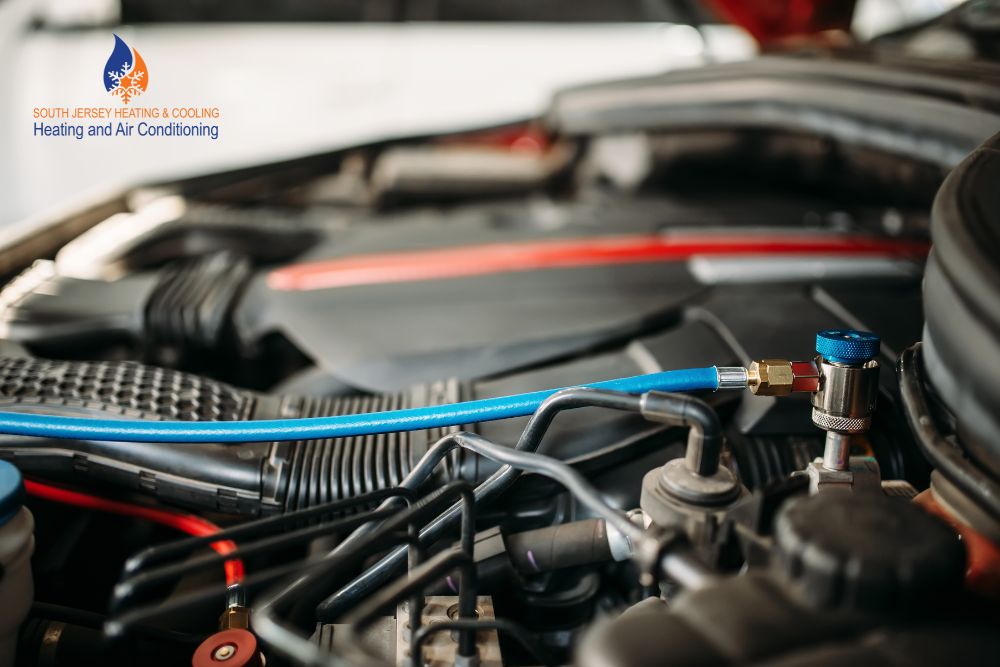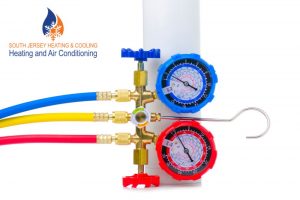Do I Have Enough Freon? Commercial Coolant Levels Explained
The arrival of spring means it’s time to switch your company’s HVAC from heating to cooling. When doing so, a common question involves how much refrigerant should be in a commercial system. How do you know if you have the right coolant level, and what are some signs that something is off? Here are some answers to those and other frequently asked questions about Freon levels.
How Much Coolant Do I Need?
Every commercial HVAC system has a recommended high and low range that varies based on size, model, and other factors. In particular, the manufacturer puts out specific guidance for each unit produced. So you can always consult your manual or look for an online version with more details.
Many business owners lose track of their HVAC manual, and that’s okay too. Here at South Jersey Heating and Cooling, we are very familiar with the load recommendations for commercial units and can advise you accordingly.
Signs of Too Little Coolant
During the cooling process, refrigerant constantly changes from a liquid to a gas and then back again. This process can’t be performed efficiently when a unit is low on coolant. Accordingly, you may notice warm air coming from your vents when the A/C is running.
In extreme cases, your condenser coils may freeze over as well. This constant freezing and thawing can cause expansion that will ultimately shorten the lifespan of your system.
What Causes Low Freon?
Commercial HVAC systems are charged with the recommended amount of refrigerant during installation. This amount will never get used up unless there’s a leak somewhere. So it’s not enough just to recharge your unit with more coolant since what you put in will soon just go right back out.
Coolant leaks can happen in a number of places, including the coils and hoses. And with larger industrial units, there can actually be multiple leaks within a single system. Allow us to use our state-of-the-art leak detection equipment to pinpoint the source of your leak(s) and properly address them.
Is Too Much Freon Bad?
High coolant levels are just as problematic as low ones. And contrary to popular belief, high refrigerant levels will not make your building cooler. It will place your unit under an additional strain because the Freon will take longer to move from a liquid to a gaseous state. You probably won’t notice a difference in how your system performs either.

Dangers of Overfilling
If you have too much refrigerant, it can only mean one thing: someone has overfilled it. Indeed, after experiencing low coolant, many entrepreneurs decide to compensate by adding too much Freon. They’ll then ask one of their maintenance mechanics to “charge” the system using a DIY kit or even Freon they’ve somehow acquired from elsewhere.
Adding too much Freon is NEVER recommended, and in fact is almost as harmful as having too little. What’s more, topping off refrigerant levels is NOT a DIY project. Likewise, if you have too much, we don’t recommend trying to siphon out any extra yourself, either.
Coolant can leak or explode if not handled properly, thereby presenting a danger to people and the environment. Rather than trying to regulate Freon levels yourself, contact us to measure and maintain the right amount for your system.
Schedule a Coolant Check with SJHC
Don’t wait until A/C problems thwart your operations. As part of your spring tune-up, have South Jersey Heating and Cooling check your refrigerant levels to ensure they are within the recommended guidelines. Our appointments are filling up quickly, so contact us today to secure your time slot.









